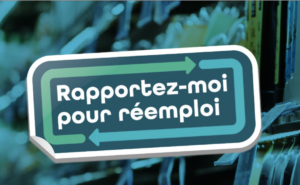Sustainability, safety, measures to reduce waste, reduction of plastic, adoption of schemes that are convenient for both consumer and industry: the packaging sector is at a crucial turning point, calling for a complete reimagining of traditional practices in response to shifting trends and urgent challenges. Packaging waste dominates solid waste in EU towns, accounting for 36% of the total. Plastics, the most prevalent material in European food retail, covering 37% of all food sold. The economy suffers an annual loss of EUR 75-112 billion due to discarded plastic packaging materials.
This is the challenge underlying R3PACK – REDUCE, REUSE, RETHINK PACKAGING, an EU-funded Horizon Europe project which sets its sights tackling single-use plastic in the food packaging industry, paving the way for a sustainable revolution that aligns with the Green Deal’s objectives – carbon neutrality by 2050 and economically viable, 100% reusable or recyclable packaging in the EU market by 2030.
The project started in June 2022 and will run for 36 months until May 2025. With 24 organisations from seven different countries, R3PACK unites in a collaborative effort key stakeholders along the food value chain, encompassing packaging manufacturers, retailers, food sector experts, innovative solution providers, and leading universities.
To reduce single-use plastic packaging, R3PACK’s levers for action are to secure fast and extensive uptake of innovative technologies allowing immediate substitution of complex multilayer plastic packaging with high-performing fibre-based packaging and to optimise industrial reuse schemes for packaging covering the needs of 13 different food product types.
The path to substitution
While being aware of the need to reduce plastic for environmental, economic and social reasons, it is undeniable that this material offers numerous functional features in food packaging. Its barrier properties not only protect, but also increase the shelf life of products, i.e. the length of time that a product, in particular food, can be kept on a shelf before it becomes too old to be used or sold. Switching to fibre-based packaging will thus mean overcoming several technical challenges:
– finding the right technology combinations to functionalise the fibres;
– meeting barrier requirements (against oxygen, water-vapor, grease, etc.);
– securing food safety and minimum shelf life.
The new solutions need to be adapted to existing industrial processes and be economically viable. However, scaling up the production of recyclable fibre-based packaging materials will lead to industrial uptake of this solution, allowing a cheap and fast-paced production of plastic.
R3PACK will work towards the development of industrial, renewable, and primarily recyclable but secondarily compostable/biodegradable, fibre-based food packaging solutions. These solutions will be able to substitute part of the existing complex multi-component flexible and rigid plastic packaging while securing the same barriers properties and a shelf life which offers a proper consumption time while limiting food waste.
A model for reuse
Out of the four models for reuse identified by the Ellen MacArthur Foundation in its report on Reuse Packaging Business Models, R3PACK will focus on the « return on the go » scheme. This implies that consumers will return the packaging at a store or drop-off point. The packaging is then cleaned and redistributed.
Reuse models were abandoned about 50 years ago by most European countries which favoured linear production processes instead. Switching back to reuse schemes requires an entire remodelling of the current logistics system, rethinking packaging and standardising protocols in order to develop interoperable practices across the EU.
From an environmental, economic and social perspective, R3PACK is working on the optimisation of industrial reuse and its effective translation into successful and replicable business practices.
One year anniversary of R3PACK
June 2023 marks the one-year anniversary of the launch of R3PACK, and one year full of hard work from our partners! At the last consortium meeting held last June in Paris at @RESET’s offices, R3PACK’s coordinator, partners took time to reflect on achievements, address challenges, and outline the next steps on this groundbreaking journey.
This past year has seen a huge progress in several work packages of the project. The team from Aarhus University (Denmark) working on the analysis of consumer behaviour, is advancing on their ongoing work to understand beliefs of reuse schemes and fibre-based packaging to improve consumer acceptance towards both. Together with ISTC-CNR (Italy), Aarhus conducted a survey in the countries where the demonstration will take place about consumer beliefs with regards to reuse and paper-based packaging and about leveraging social norms for optimising reuse systems and paper-based packaging. An essential task to understand how to propose innovations to consumers in order to generate a lasting impact and effectively promote the adoption of sustainable schemes.
SGS has developed a food safety protocol for reusable packaging, testing the ‘migrations’ (the transfer of chemical contaminants from the packaging into food) as well as carrying out ‘sensory tests’ (transfer of odor and taste) and performance test (distortion of packaging after several washing cycles) assessing the compliance of the results emerged from their tests with regulations on food contact materials. The aim is to help food packaging manufacturers to assess and validate their safe reusable packaging. The team has also produced a washing audit grid – an auditing protocol applicable to washing practices for industrial reuse was defined to ensure consumers’ safety.
The teams in charge with substitution, led by (RE)SET, are currently conducting seven ongoing pilots to replace single-use plastic and build the packaging of the future by working on the formulation of materials, their combination and characterization, as well as their machinability, and the ongoing studies on shelf-life.
The teams from Polimi and Innovhub (Italy) working on LCA (i.e. Life Cycle Assessment, which identifies, quantifies and assesses sources of environmental impact throughout a product’s life cycle) are advancing on their work, including conducting LCAs of existing packaging solutions to be substituted, LCAs of suitable solutions for reuse, as well as guidelines for efficient environmental reuse scenarios.
Lastly, our communications and advocacy team at SAFE (Belgium) has been working up in setting up R3PACK’s social media (Twitter, LinkedIn & Instagram), establishing R3PACK’s newsletter (feel free to subscribe here), and developing and implementing an advocacy strategy that calls on EU legislation to push for reuse schemes and alternative materials in food packaging.
A big bulk of the work is happening now, as all partners are preparing for the next milestone – real-life demonstrations of our solutions in retail shops in Europe, to evaluate how consumers react to substitution materials and reuse schemes, address possible issues, and make R3PACK a reality.
On the road to demonstrations
R3PACK is preparing to carry out large-scale demonstrations of its solutions all around Europe. The aim is to adapt and tailor them to the real-life scenarios and different economic, geographical and social conditions offered by the defined pilot experiments.
Reuse will take the lead beginning of next year, where demonstrations will start at a small scale in about 6 shops at our two retail partners (@Carrefour & @Système U) in France to start with. This means that a first batch from the 13 food categories will be packaged in reusable packaging and follow R3PACK’s developed industrial reuse scheme. The demonstration process design (moving from small, medium, large geographical scale and allowing the possibility of setting up real cross-border industrial reuse schemes, leveraging on the existing suitable facilities in specific concerned areas) has been conceived to maximize learnings and best practices, allowing to finetune a replicable model for European industrials, food producers, retailers moving towards sustainable packaging strategies. Throughout the demonstration R3PACK will try to involve more and more external food manufacturers to increase its impact and create extensive exploitation opportunities for R3PACK’s results.
As for the substitution pillar, demonstrations will start during the second half of 2024 – this will involve validating the production process of the selected fibre-based solutions (factory level), analysing logistics (transportation, storage, and post-purchase), and testing all the system.
The objectives of the project are ambitious, considering the nature of the tasks at hand and the difficulty of the challenges involved, from the economic aspects to the need for industrialisation of schemes. We aspire to achieve substantial progress by involving the entire value chain, in a systemic manner, setting good practices and exploring solutions that would be beneficial for the whole industry.
By 2030, we aim to a considerable reduction of 140,000 tonnes per year in plastic packaging waste through the implementation of R3PACK’s solutions in up to 14,000 stores, partnering with the retailers and food producers involved in the project. While we understand that this may seem like an impossible task, we are committed to making a meaningful impact.
Moreover, within the first year after the project’s completion, we aspire to extend the adoption of these solutions to other major EU retailers and industries. This step, while demanding, is essential for fostering widespread change in the packaging industry.
Lastly, our efforts also aim to promote the recognition of R3PACK’s food safety and washing protocols as reference tools at the EU level. This recognition would serve as a vital support system for the adoption of industrial reuse practices.
We acknowledge that revolutionising packaging is a challenging task, but we are dedicated to pushing the boundaries and making progress towards a more sustainable future. Stay tuned!

This project has received funding from the European Union’s Horizon Europe Research and Innovation Programme under Grant Agreement No 101060806.



